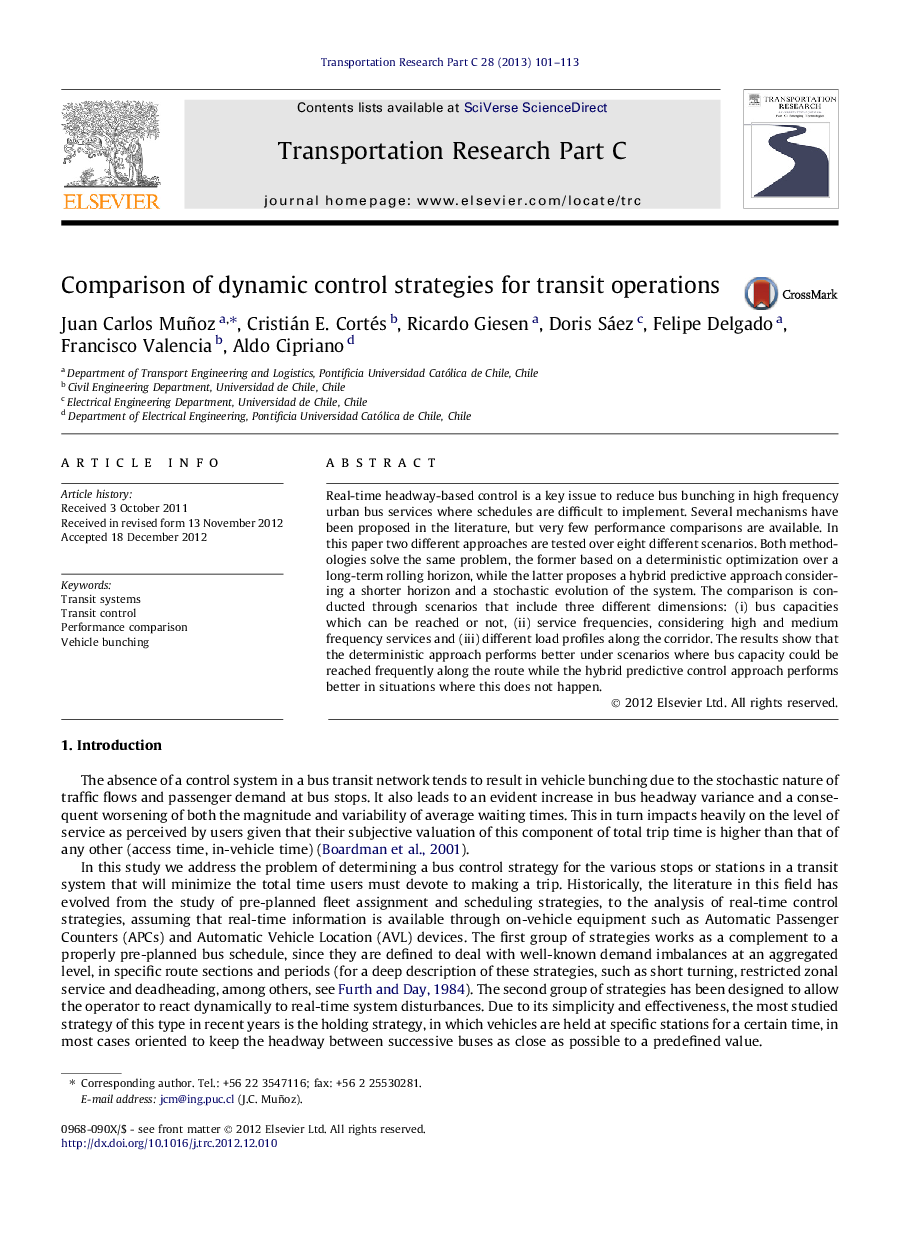| Article ID | Journal | Published Year | Pages | File Type |
|---|---|---|---|---|
| 525176 | Transportation Research Part C: Emerging Technologies | 2013 | 13 Pages |
Real-time headway-based control is a key issue to reduce bus bunching in high frequency urban bus services where schedules are difficult to implement. Several mechanisms have been proposed in the literature, but very few performance comparisons are available. In this paper two different approaches are tested over eight different scenarios. Both methodologies solve the same problem, the former based on a deterministic optimization over a long-term rolling horizon, while the latter proposes a hybrid predictive approach considering a shorter horizon and a stochastic evolution of the system. The comparison is conducted through scenarios that include three different dimensions: (i) bus capacities which can be reached or not, (ii) service frequencies, considering high and medium frequency services and (iii) different load profiles along the corridor. The results show that the deterministic approach performs better under scenarios where bus capacity could be reached frequently along the route while the hybrid predictive control approach performs better in situations where this does not happen.
► Two different headway-based transit control approaches are formulated and compared. ► Both approaches are tested over an identical set of operational scenarios. ► Both control strategies improve the level of service and its variability. ► The deterministic control is preferred when bus capacity is frequently reached. ► The hybrid predictive approach performs better when capacity is not an issue.
